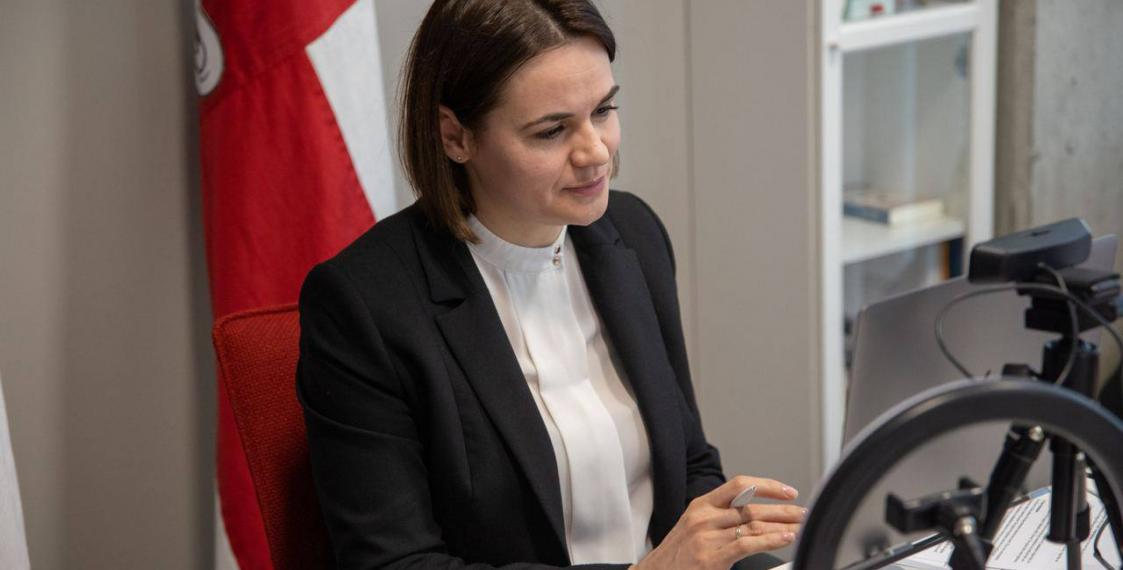Disregarding the regime’s elections: Coalition building between Sviatlana Tsikhanouskaya and Kastuś Kalinouski Regiment
 The situation has not changed
The situation has not changed

The democratic forces movement is actively discouraging its supporters from participating in the upcoming parliamentary and local council elections, citing reasons such as harsh repression, emigration, depoliticization of supporters, and a perceived lack of influence on the domestic agenda. Meanwhile, the Tsikhanouskaya’s coalition is forging closer ties with volunteers in Ukraine, exploring community-driven approaches to bring about a change in the current power dynamics.
Tsikhanouskaya, the leader of democratic Belarus, has criticized the organizers of the election campaign and called for people to disregard it altogether, urging them not to participate in the vote.
The United Democratic forces are drawing the attention of the international community to the non-recognition of the elections, pointing to severe repression and restrictions on the participation of alternative candidates.
In response to the regime’s elections, the democratic forces are redirecting the focus of its sympathizers toward strengthening alternative political institutions.
Tsikhanouskaya’s broad coalition aims to refresh the composition of the Coordination Council, with several prominent opinion leaders joining the campaign. However, this initiative primarily captures the interest of political emigrants, as the majority of Belarusian society struggles to grasp the powers and role of the Coordination Council, limiting the potential audience for participants in elections to this institution.
Moreover, the rhetoric of democratic forces continues to radicalize, narrowing its base of sympathizers and attempting to unite a democratic movement that holds more extreme views than the broader audience of change supporters.
The positions of the coalition led by Tsikhanouskaya are aligning more closely with the agenda of volunteers in Ukraine. Representatives of Belarusian voluntary associations and the Tsikhanouskaya’s coalition are scheduled to participate in the “Path to Freedom” conference in Kyiv next week.
However, the impact of political organizations on the domestic agenda is significantly curtailed due to the harsh repression, legislative constraints, and other restrictions imposed by Lukashenka’s regime.
Conversely, the audience of democratic forces is narrowing down to political emigrants, supporters of the European choice for Belarus, and ardent opponents of Lukashenka’s regime.
Tsikhanouskaya’s Cabinet and Office have managed to strengthen relations with Western countries by advocating for the interests of political migration and promoting the idea of European integration for Belarus.
Democratic forcess and the civil society continue to support victims of Lukashenka’s regime and build trust among their sympathizers. BySOL has transferred a total of about EUR 2 million to those repressed.
BYPOL is attempting to regain the trust of supporters of change and publicize the results of an independent audit. However, it seems unlikely that they will be able to restore the level of support that existed before the public conflict and the split of the organization.
Several political organizations are hopeful to support alternative candidates for parliament and local councils, considering that all opposition political parties have already been dissolved by the Lukashenka regime. The leader of the “Greens” party, Dzmitry Kuchuk, announced his intention to run for the House of Representatives, and the 2020 presidential candidate Cherachen announced 39 potential nominees from his political organization.
In summary, there are concerted efforts to intensify criticism and pursue international isolation of Lukashenka’s regime.
Subscribe to our newsletter




Situation in Belarus
Constitutional referendum: main consequences


 Video
Video
How to count the political prisoners: are the new criteria needed?


 Video
Video
Paternalism In Decline, Belarusian Euroscepticism, And The Influence Of Russia


 Video
Video












